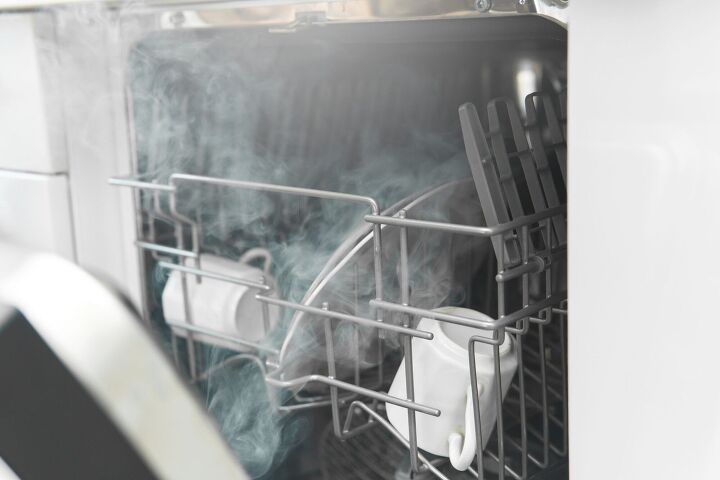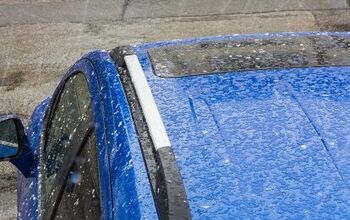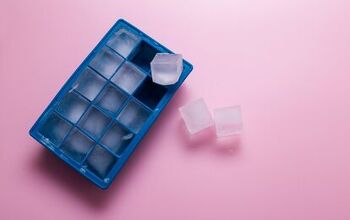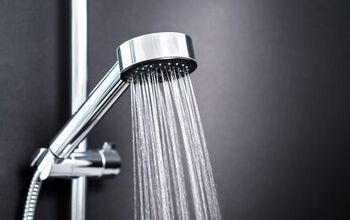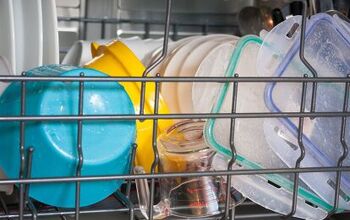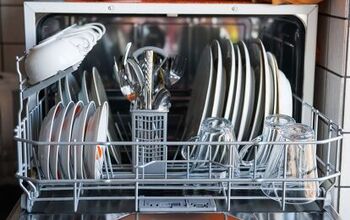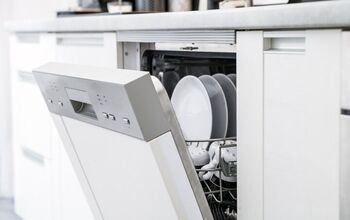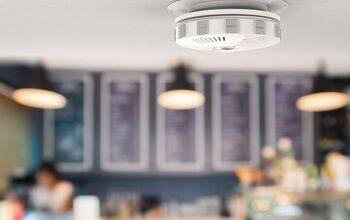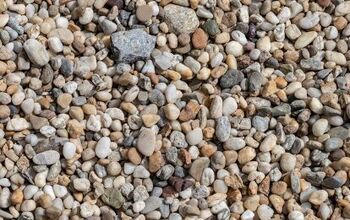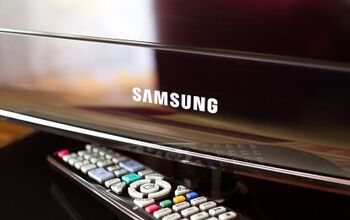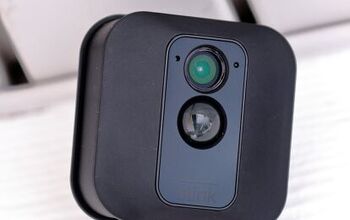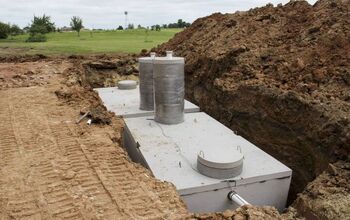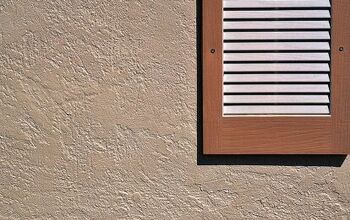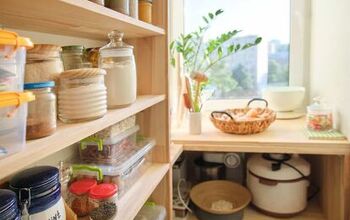Can You Use The Dishwasher During A Boil Water Advisory?

If you were recently placed under a boil water advisory, this means that there’s a concern that your local water supply may be contaminated with pathogens. When this happens, you can no longer trust the water that comes out of your tap, including any appliances that are connected to your water supply. This includes your refrigerator and ice maker, but what about your dishwasher? Can you use the dishwasher during a boil water advisory?
You can only use your dishwasher during a boil water advisory if the water reaches at least 150 degrees Fahrenheit during the final rinse cycle or your dishwasher features a sanitizing cycle. If not, you’ll have to wash your dishes by hand and then sanitize them with diluted household bleach.
While it may be an inconvenience, it’s important that you follow all the directions from the CDC and your local health officials during a boil water advisory. Fortunately, if you have power in your house or a gas stove, making your tap water safe for the time being is as easy as boiling it over your stovetop.
Do You Need Appliance Installation or Replacement?
Get free, zero-commitment quotes from pro contractors near you.

What is a Boil Water Advisory?
A boil water advisory is a public health notification issued by the government or other health authorities to consumers that advises them to boil tap water before consuming it. These advisories are issues when an event has occurred that could have potentially adverse effects on water quality. Or, the advisory is given when there it is known that a community’s drinking water is contaminated by pathogens.
There are two main types of boil water advisories: precautionary and mandatory.
- Precautionary boil water advisory: Distributed when the water system experiences a loss in positive water pressure, usually caused by low storage tank levels or a severe main break. With the loss of positive water pressure, this opens up the possibility for contamination to enter the distribution system. Precautionary boil water advisories are the most common type, issued as a precaution until water samples can be collected and properly analyzed.
- Mandatory boil water notice: Distributed when there is confirmed contamination in the water system. In this case, individuals are instructed to boil tap water in order to kill bacteria and other organisms present in the water. This must be done until the issue is resolved and the advisory is lifted. Contamination from organisms, such as bacteria, parasites, and viruses can cause symptoms that include cramps, nausea, diarrhea, and headaches.
What Do You Do During a Boil Water Advisory?
If your local health officials have issued a boil water advisory, this means that you should only use bottled water or boil tap water for the time being. Do not consume tap water without boiling it first. When under a boil water advisory, here is the proper way to boil water:
- Fill up a large pot with tap water.
- Heat the water over your stove until it reaches a full rolling boil (for elevations above 6,500 feet, this means boiling for three minutes)
- Continue boiling the water for at least 1 minute.
- Turn off the heat and allow the water to cool completely.
- The water can be used immediately. Otherwise, store in a clean, airtight container.
In the meantime, you should use bottled water or boil water for drinking, cooking, food preparation, washing dishes, brushing your teeth, and making ice until you have been notified that the advisory is lifted. We also recommend taking the following precautionary steps:
- Throw away any beverages, uncooked food, and ice cubes that were made using tap water on the day the advisory was issued.
- Keep boiled water in your refrigerator at all times for drinking.
- Avoid swallowing water or letting the water come into contact with open wounds while bathing or showering.
- Give your pets only boiled or bottled water.
- Do not use your home filtration devices in place of bottled water or boiled tap water. Most home water filters do not filter out microorganisms.
- Do not wash fruit or vegetables with tap water.
- Do not use water from any appliance that is connected to your water line, including the ice maker and water dispenser in your fridge.
Can You Use the Dishwasher During a Boil Water Advisory?
Although it’s advised to avoid using water from any appliance connected to your water line, does this include dishwashers? In most cases, household dishwashers are safe to be used during a boil water advisory if the water reaches a final rinse temperature of at least 150 degrees Fahrenheit, or the particular model has a sanitizing cycle.
If not, you’ll have to wash your dishes by hand and then sanitize them accordingly. The CDC recommends the following steps to wash dishes by hand during a boil water advisory:
- Scrub and rinse your dishes by hand as you normally would under hot water from the tap.
- Then, in a separate sink basin, pour in 1 teaspoon of household liquid bleach for each gallon of warm water.
- Soak the rinsed dishes in the bleach and water mixture for at least a minute.
- Allow the dishes to air dry completely on a clean surface before use.
Quick Tip: If possible, try to use disposable cups, plates, and utensils during a boil water advisory to avoid having to do the dishes.
Do You Need Appliance Installation or Replacement?
Get free, zero-commitment quotes from pro contractors near you.

Related Questions
Can I wash my hands with tap water during a boil water advisory?
In most cases, it is safe to wash your hands with tap water during a boil water advisory. However, make sure that you’re following all the necessary steps including using soap, scrubbing for at least 20 seconds, and thoroughly rinsing and drying your hands with a clean cloth.
Can you use a washing machine during a boil water advisory?
Assuming you have power in your home and sufficient water pressure, you can use your washing machine to wash your clothes as you normally would in a boil water advisory.
Can you use tap water for watering plants during a boil water advisory?
Yes, it is safe to still use tap water for watering household plants and gardens during a boil water advisory.
Related Guides

Jessica considers herself a home improvement and design enthusiast. She grew up surrounded by constant home improvement projects and owes most of what she knows to helping her dad renovate her childhood home. Being a Los Angeles resident, Jessica spends a lot of her time looking for her next DIY project and sharing her love for home design.
More by Jessica Stone



